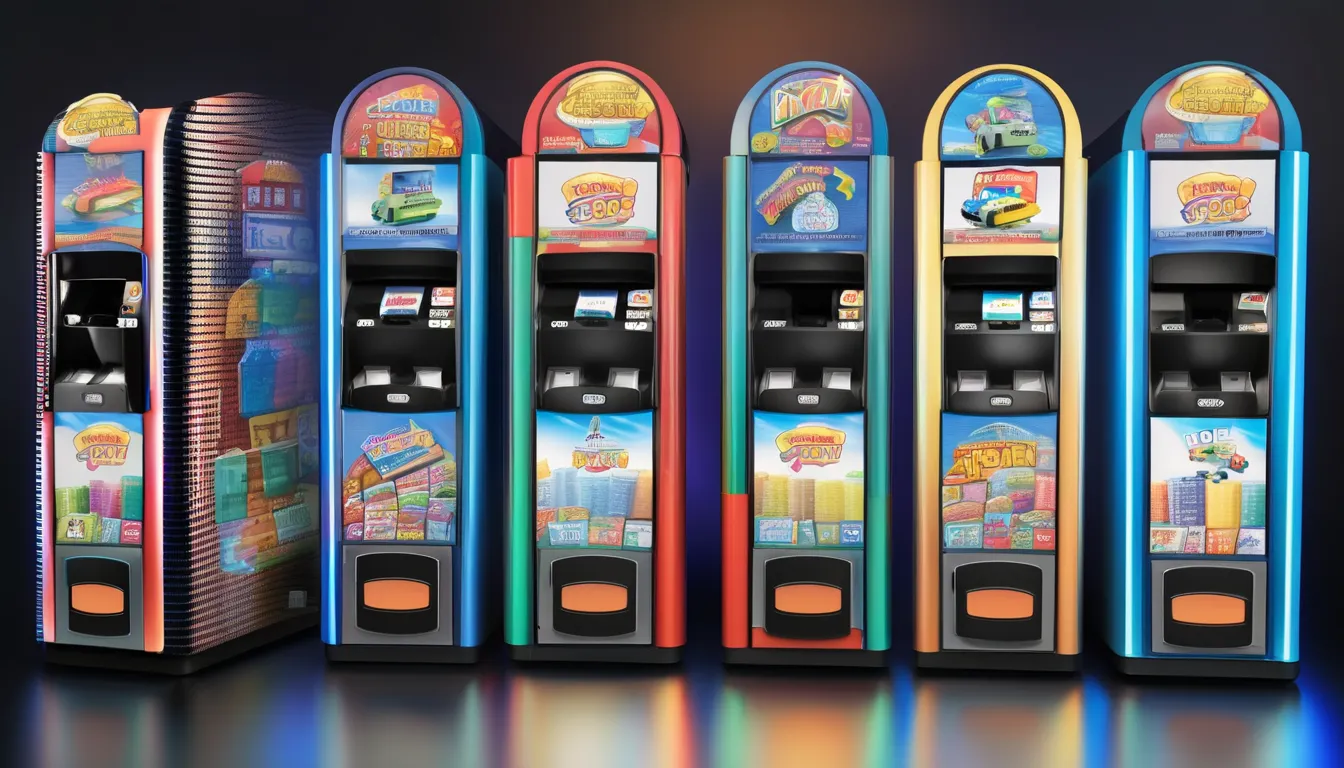Owning and operating trading card vending machines presents a unique opportunity for business owners to leverage various tax benefits. From deductions for maintenance costs to depreciation advantages, there are several ways to optimize your tax situation. By exploring these incentives, you can potentially enhance your financial position and business sustainability. But that's just the tip of the iceberg. There are even more nuances to uncover when it comes to maximizing tax advantages in this niche business sector.
Tax Deductions for Machine Maintenance
When maintaining your trading card vending machines, you can benefit from tax deductions on expenses related to upkeep and repairs. Regular maintenance is crucial for keeping your machines in optimal working condition, ensuring smooth operations and maximizing profits.
The costs incurred for cleaning, servicing, and repairing your vending machines are considered necessary business expenses and can be deducted from your taxable income. It's important to keep detailed records of all maintenance activities and expenses to support your deduction claims in case of an audit.
Depreciation Benefits for Equipment
You can also take advantage of depreciation benefits for the equipment used in your trading card vending business. Depreciation allows you to deduct the cost of your equipment over time, reflecting its gradual decrease in value as it's used in your business. Here are some key points to consider regarding depreciation benefits:
- Accelerated Depreciation: Some equipment used in your trading card vending business may qualify for accelerated depreciation, allowing you to deduct a larger portion of the equipment's cost in the earlier years of ownership.
- Section 179 Deduction: Under Section 179 of the IRS tax code, you may be able to deduct the full purchase price of qualifying equipment purchased or financed during the tax year, up to a certain limit.
- Bonus Depreciation: This allows you to deduct a percentage of the equipment's cost in the first year of ownership, enhancing your tax benefits for purchasing new equipment.
- Depreciation Schedule: Equipment is depreciated over a specific period according to the IRS depreciation schedule, which can vary depending on the type of equipment used in your business.
Expense Write-Offs for Inventory Costs
As you manage your trading card vending business and leverage depreciation benefits for your equipment, it's crucial to also consider the advantageous write-offs available for inventory costs.
When it comes to tax benefits, being able to deduct the cost of the trading cards you purchase for your vending machines can significantly impact your bottom line. The IRS allows you to write off the cost of goods sold (COGS) as a business expense, reducing your taxable income.
To maximize this write-off, it's essential to keep detailed records of your inventory purchases and sales. By accurately tracking the cost of each trading card sold, you can calculate your COGS and claim the appropriate deduction.
This write-off can help lower your tax liability, freeing up more funds to reinvest in your business or expand your vending operations.
Tax Credits for Small Business Owners
Maximizing tax credits is a key strategy for small business owners looking to reduce their tax burden and improve cash flow. As a small business owner involved in trading card vending machines, you can take advantage of various tax credits to help your business thrive. Here are some tax credits that could benefit you:
- Small Business Health Care Tax Credit: If you provide health insurance to your employees, you may be eligible for this credit, which can cover up to 50% of the premiums you pay.
- Research and Development Tax Credit: This credit encourages innovation. If you invest in developing new vending machine technologies or processes, you may qualify for this credit.
- Work Opportunity Tax Credit: Hiring individuals from certain target groups can make you eligible for this credit, providing a tax break for each qualifying employee.
- Energy-Efficient Commercial Buildings Tax Deduction: If you own the building where your vending machines are located and make energy-efficient improvements, you could qualify for this deduction.
Capital Gains Tax Exemptions for Investors
Investors in trading card vending machines can benefit from capital gains tax exemptions when they sell their investments for a profit. When you sell your trading card vending machine for more than you purchased it, the profit you make is considered a capital gain.
The good news is that capital gains from the sale of trading card vending machines held for more than a year qualify for favorable tax treatment. As an investor, you may be eligible for capital gains トレカ 節税 exemptions, potentially allowing you to keep more of your profits.
By taking advantage of these exemptions, you can reduce the amount of taxes owed on the capital gains from your vending machine investments. It's essential to understand the specific rules and regulations surrounding capital gains tax exemptions to maximize your tax benefits as an investor in trading card vending machines.
Be sure to consult with a tax professional to ensure you're optimizing your tax advantages and staying compliant with the tax laws.
Frequently Asked Questions
Can Trading Card Vending Machines Be Used in Residential Areas?
Yes, trading card vending machines can be used in residential areas. They offer convenience and accessibility for collectors. Ensure compliance with local regulations and consider noise levels and foot traffic to address any potential concerns from neighbors.
Are There Any Restrictions on the Types of Cards Sold?
Yes, there are restrictions on the types of cards sold. You must adhere to guidelines set by the trading card industry to ensure legality and compliance. It's crucial to research and understand these rules thoroughly.
Do I Need a Special License to Operate These Machines?
You don't need a special license to operate these machines. Just make sure to check local regulations. It's important to follow any permit requirements and business regulations that may apply in your area.
How Often Should I Restock the Vending Machines?
You should restock the vending machines regularly to ensure they are adequately filled for customers. Monitoring sales patterns and popular items will help you determine the best restocking schedule to maintain profitability.
Are There Specific Security Measures Required for These Machines?
To ensure safety, always install security cameras and alarms near your vending machines. Regularly check for tampering or damage. Implement a secure cash handling system and conduct background checks on employees with access.
Conclusion
In conclusion, owning and operating trading card vending machines can offer significant tax benefits for business owners. By taking advantage of deductions for maintenance, depreciation benefits, expense write-offs, tax credits, and capital gains tax exemptions, you can effectively reduce your tax liability and improve your financial situation. Make sure to keep thorough records and seek advice from a tax professional to maximize these tax advantages and optimize your overall tax strategy.



